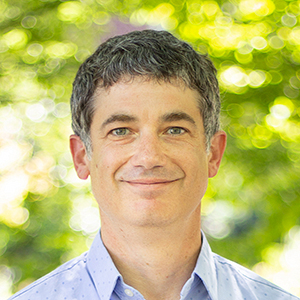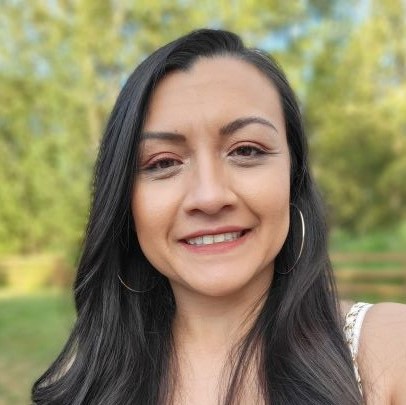
Humanities Core Courses
Freshman Year
Foundations Series
What is justice? What is peace? What are the basic concepts, competencies, and skills students need to work for peace and justice in our community? The purpose of this series of courses is to begin to answer these questions. To help students grasp the utility and significance of these questions, these courses have a local focus and theme: e.g., juvenile justice and the school-to-prison pipeline.
-
HUMT 1315 Difference, Power, and Social Change
This course examines the ways that social constructions such as race, ethnicity, gender, sexuality, ability, among others, contribute to minoritization and social inequalities. It introduces students to major theories of structural exclusion and applies these theories to specific examples drawn from students’ everyday lives and contemporary culture.
-
HUMT 1325 Introduction to Peace and Justice Studies
This course will examine the key terms, ideas, and theories that are at the heart of peace and justice studies as an academic discipline. Students will read foundational texts in the discipline and explore the ways they help to interpret important case studies of social change. Especially important in this regard is the exploration of types of peace (negative and positive) and violence (direct, structural, and cultural), justice as it applies to social and political institutions, the history of the idea and law of human rights, how nonviolent social change happens, and critical questions that shape the contemporary debates in the discipline.
-
HUMT 1330 Introduction to Discernment and Community Engagement
This course introduces students to the theory and practice of Ignatian discernment and of community engagement. Through 18 hours of involvement with a community partner, students will analyze models of community engagement and the ways the community partner addresses a social issue. This course is the third in a series and will provide an opportunity to apply concepts from previous courses including (a) power and privilege in community engagement and (b) examples of social justice within community partnerships. Through reflective assignments, students will practice discernment to increase awareness of their social position, skills and vocational aspirations.
Contexts Series
This Core Series is a thoughtful exposure to the zones and cultures that surround us through a peace and justice lens. Local, national and global contextualization of foundations for peace and justice.
-
HUMT 1830 Indigenous Peoples of the Pacific Northwest
This course introduces students to the culture, art, stories, and experiences of the Indigenous Peoples living in the areas now known as Oregon, Washington, Montana, British Columbia, and Alaska. It reveals excluded stories and brings students into contact with present-day representatives of these cultures. It seeks both to cultivate a more careful attitude toward our present, immediate space and to use local history as a microcosm for thematic interests.
-
HUMT 1840 American Revolutions
This course spans more than two turbulent centuries of American history to explore what revolution is, what counts as revolution-and who counts as revolutionaries-and how we study it. It offers an introduction and a framework for understanding the history of revolutions and revolutionary change in the United States and the power relationships and conflicting values that these institutions embodied.
-
HUMT 1860 Religion, Conflict, and Peace
Is religion a force for peace or violence? Is religion a pretext used to justify political agendas? Is some violence uniquely religious? Is peace possible without the sacred? How can believers find justification in the same tradition for both peace and violence? This course considers these questions in a variety of contexts and eras. It assumes no prior background with religion and introduces students to concepts important for the study of conflict and peace. By examining material that has influenced followers for centuries as well as contemporary case studies, students will develop a greater sense of global history and become more careful observers of the present-day phenomena. The course complements written work with site visits to local representatives of religious traditions.
Interdisciplinary Inquiry Series
Introduction to various methodological approaches in the examination of peace and justice. Discernment into which tools are appropriate. Basic literacy in disciplinary methods.
-
UCOR 1800 Inquiry Seminar in the Natural Sciences
Courses that introduce students to the subjects and methods of inquiry of the natural sciences by engaging in focused study of one or more particularly important questions arising from a natural science discipline. These courses introduce students to key concepts, knowledge, and principles of the relevant discipline as they relate to the questions being studied in the individual section. They are not intended to be survey courses or broad introductions to the discipline, but should be content-rich, with the content revolving around and connected to the central questions being studied. These courses engage students in studying questions about the physical/biological universe. All sections incorporate the direct examination of natural phenomena in either laboratory or field settings; use observation to develop and evaluate principles and hypotheses; and explore how knowledge of key scientific principles can be used to understand and interpret observations. UCOR 1200 Quantitative Reasoning is a prerequisite for UCOR 1810 courses. UCOR 1800 does not have any prerequisites.
-
HUMT 1210 Creative Expression for Peace and Justice
In this course, students are actively engaged in the creation of original artistic work as they examine the process and product of artists whose work has instigated social and political change. Various pieces are used to allow students insight into how art reveals the internal struggles of those striving against injustice. Students will bring what they learn to their own, original piece, composing works which reveal and combat social injustice in the context of the contemporary American landscape.
Sophomore Year
Ethics and Action Series
This Core series introduces students to competing conceptions of right and wrong. Builds conceptions of moral agency and responsibility in a broken world. Explores the relationships between scientific and humanistic perspectives.
-
HUMT 2000 Philosophy of Human Person and Social Identity
Does natural science occupy a privileged position when it addresses perennial questions about human nature? Are religious beliefs compatible with a scientific worldview? What are social identities and in what sense can we describe gender and race as social constructs? How do social identities inform our understanding of the world? Given all that we know about the way that our lives are shaped by biology and culture, can we still describe human beings as free? The aim of this course is to introduce students to a series of contemporary philosophical debates about the status of science and religion, the nature of social identities, and the nature of human freedom. Along the way, we’ll explore how these debates mirror some of the conflicts in contemporary political discourse.
-
HUMT 2010 Ethical Reasoning for Peace and Justice
Are some wars morally justifiable? How should states respond to terrorism? How should governments respond to social injustice within their own borders? Do states owe reparations or compensation to the descendants of victims of state-sponsored violence and discrimination? This course begins by examining the principal theories of contemporary ethics (consequentialism, deontology, and virtue ethics), a debate over moral and cultural relativism, and three competing views on the nature of justice in the state. It then wrestles with three difficult philosophical problems that are essential for developing justifiable moral critiques of states and their constituents. Are human rights universal? Should we hold individuals responsible for the misdeeds of their country or social group? Should we relax our ethical standards during political emergencies? Finally, it analyzes moral dilemmas that arise when states engage in violence outside of their borders and when they attempt to address their own histories of discrimination and violence.
-
HUMT 4000 Seminar on Contemporary Problems
Seminars that engage students in social and cultural issues of the contemporary world, with special attention to local expressions of these issues. Emphasis on relationships among empirical data and the search for the normative and the ideal; attention to acquiring the additional knowledge, skills, and sensibilities required for successful completion of a comprehensive project in the Matteo Ricci College capstone courses, HUMT 4010 and 4020.
Global Citizenship Series
This Core series provides students basic understanding of how wealth has been and could be distributed, how the Jesuit order, Catholic thought, and world religions contribute to debates about peace and justice.
-
HUMT 2100 Quantitative Reasoning for Peace & Justice
This course will allow students to gain and refine mathematical skills useful for citizenship. Topics covered include voting theory, statistics, the mathematics of personal finance and taxation. In addition, students will learn why quantitative literacy is important for everyone in our society and explore barriers to achieving this type of literacy. This course includes a required service-learning component. Each student will volunteer at least 18 hours over the course of the quarter, tutoring children in math.
-
HUMT 2110 Economics of Wealth and Inequality
The world is experiencing historically unprecedented levels of economic inequality. This course discusses the meaning and measurement of economic inequality, providing you a historical and cross-national perspective on current levels of inequality. It uses macroeconomic concepts to measure and explain economic inequality across nations. It then turns to microeconomic theory, using it as a framework for the exploration of competing explanations of economic inequality within nations. The course evaluates claims that inequality is detrimental to individual and societal well-being and to the political process. Finally, it addresses the question of what, if anything, can or should be done to address economic inequality.
-
UCOR 3800 Natural Science and Global Challenges
Courses in the natural sciences that explore important global issues through the lens of a specific discipline in the natural sciences. Each course focuses on a particular issue/challenge and course content assists students in understanding key disciplinary knowledge and approaches that provide insight into the issue. Students explore ways to productively think about and address the issue. These courses help students increase their understanding of complex global issues, develop knowledge of a natural science as it relates to global issues, explore approaches to and solutions for global issues, develop skills and confidence in applying knowledge to complex issues, and improve writing and research skills. Global Challenges courses include students from a variety of disciplines, promoting interdisciplinary conversation and understanding. This course requires a major paper or project, as well as some kind of reflective assignment where students are asked to synthesize their overall learning as it relates to the global issue being studied. Community-based learning and/or field or laboratory research is encouraged but not required.
View our Learning Outcomes to learn how a Humanities degree could benefit you.

